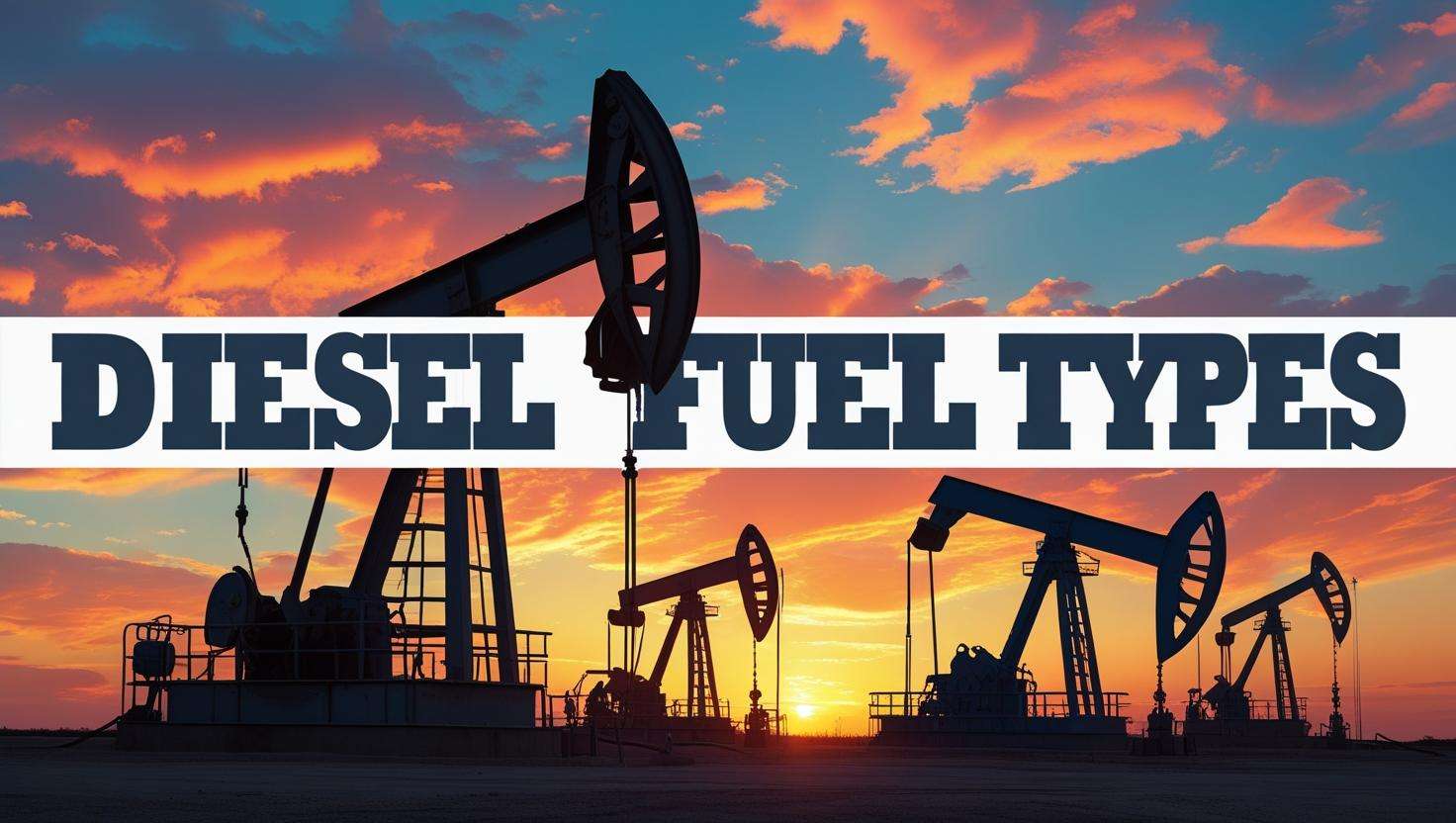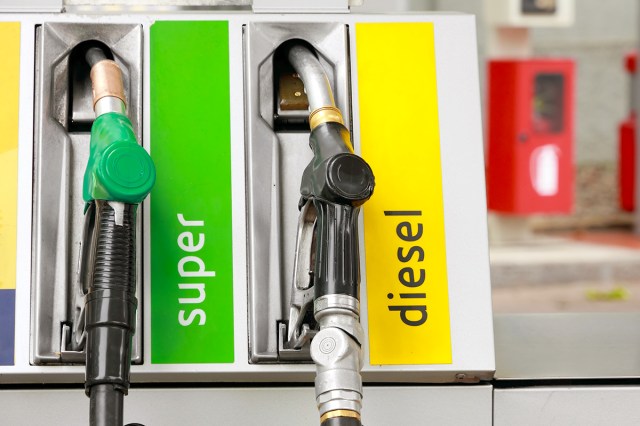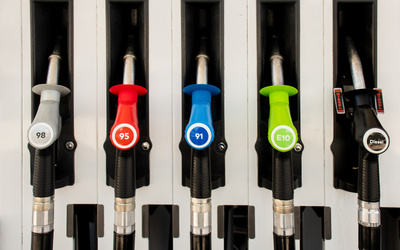Are there different types of diesel fuel? Yes, there are different types of diesel fuel. The main ones are Diesel #1 (1-D), which is thinner and performs better in cold weather, and Diesel #2 (2-D), which is denser, more efficient, and commonly used. There’s also biodiesel, made from renewable sources, often blended with petroleum diesel.
Choosing the right one can save you money, improve your engine’s performance, and protect your vehicle from damage. You’ll discover the key differences between diesel fuels and how to pick the best option for your needs. Keep reading—your engine will thank you.

Credit: www.slbaadvisors.com
Are There Different Types of Diesel Fuel?
Common Diesel Fuel Types
Diesel fuel comes in several common types. Each type has unique features and uses. Understanding these types helps in choosing the right fuel for vehicles or machines.
Most diesel fuels fall into three main categories. These are petrodiesel, biodiesel, and renewable diesel. Each type offers different benefits and challenges. Let’s explore them below.
Petrodiesel
Petrodiesel is the most common diesel fuel. It comes from crude oil through refining. It powers most trucks, buses, and cars worldwide. Petrodiesel is reliable and widely available. It burns well in engines designed for diesel fuel.
Biodiesel
Biodiesel is made from plants or animal fats. It is renewable and biodegradable. This fuel reduces harmful emissions compared to petrodiesel. Biodiesel can be mixed with petrodiesel in different amounts. It works well in many diesel engines without changes.
Renewable Diesel
Renewable diesel is produced from renewable resources like plant oils. It is chemically different from biodiesel. Renewable diesel has a higher energy content than biodiesel. It performs like petrodiesel but with fewer emissions. Engines do not need modification to use it.

Credit: interestingfacts.com
Differences In Diesel Grades
Diesel fuel comes in different grades. Each grade serves a specific purpose. Knowing the differences helps you choose the right fuel for your engine. The main diesel grades include 1 Diesel and 2 Diesel. There are also seasonal variations such as winter and summer diesel. These grades vary in properties like energy content and cold flow performance.
1 Diesel
1 Diesel is a lighter, cleaner fuel. It has fewer impurities and burns more efficiently. This grade is often used in areas with strict environmental rules. It works well in engines that need low-sulfur fuel. 1 Diesel provides better engine performance and lower emissions. It is ideal for modern diesel engines.
2 Diesel
2 Diesel is heavier and thicker than 1 Diesel. It contains more energy per gallon but can be harder to burn cleanly. This grade is common for older engines and industrial use. It may produce more soot and emissions. 2 Diesel is often cheaper but less refined. It suits engines designed for heavy-duty work.
Winter Vs Summer Diesel
Diesel changes with seasons to prevent engine problems. Winter diesel has additives to stop it from gelling in cold temperatures. It flows better in freezing weather. Summer diesel has fewer additives since it faces less cold. Using the right seasonal diesel avoids clogged fuel filters. This helps engines start easily and run smoothly year-round.
Additives And Blends
Diesel fuel often contains additives and blends that improve its performance. These substances help diesel work better in engines and in different weather conditions. Additives can boost fuel efficiency, protect engine parts, and reduce emissions. Blends mix diesel with other fuels or chemicals to change its properties.
Cetane Improvers
Cetane improvers increase the cetane number of diesel fuel. This number shows how easily the fuel ignites in the engine. Higher cetane means quicker ignition and smoother engine start. Engines run cleaner and quieter with cetane improvers added. This helps reduce harmful exhaust emissions.
Lubricity Enhancers
Diesel fuel needs good lubrication to protect engine parts. Lubricity enhancers add a thin layer of oil on metal surfaces. This prevents wear and tear inside the engine. They are especially important for modern diesel engines with precise fuel injectors. These additives extend engine life and lower maintenance costs.
Cold Flow Additives
Cold flow additives stop diesel fuel from gelling in cold weather. Diesel can thicken or form wax crystals when temperatures drop. These additives keep the fuel flowing smoothly in the engine. They improve cold weather starting and prevent fuel filter clogs. Cold flow additives are essential in winter climates.
Diesel Fuel Standards Worldwide
Diesel fuel varies across the world due to different standards. These standards ensure fuel quality and engine performance. They help control emissions and protect engines from damage. Understanding these standards is key for anyone using diesel fuel globally.
Astm D975
ASTM D975 is the main diesel fuel standard in the United States. It defines the quality and properties of diesel fuels. The standard covers various grades, including No. 1-D and No. 2-D. It sets limits on sulfur content, cetane number, and other factors. This helps engines run smoothly and reduces pollution.
En 590
EN 590 is the European diesel fuel standard. It applies to diesel used in vehicles across Europe. The standard focuses on fuel quality, sulfur limits, and cold weather performance. It requires diesel to meet strict environmental rules. This keeps emissions low and engines efficient in all seasons.
Other Regional Standards
Many countries have their own diesel fuel standards. India follows the IS 1460 standard for diesel fuel. Brazil uses the ANP regulations to control diesel quality. These standards vary but aim for similar goals. They protect engines and reduce harmful emissions locally.
Choosing The Right Diesel Fuel
Choosing the right diesel fuel matters for your vehicle’s performance and lifespan. Different types of diesel fuel work better with certain engines. Picking the correct fuel can save money and reduce damage. It also affects the environment and your overall costs. Understanding key factors helps make the best choice.
Vehicle Compatibility
Not all diesel fuels suit every engine. Check your vehicle’s manual for fuel recommendations. Some engines require ultra-low sulfur diesel for cleaner operation. Others may work with biodiesel blends or standard diesel. Using the wrong type can cause engine problems or lower efficiency. Always select fuel matching your vehicle’s needs.
Environmental Impact
Diesel fuels vary in how they affect the environment. Ultra-low sulfur diesel produces fewer harmful emissions. Biodiesel blends come from renewable sources and burn cleaner. Choosing cleaner fuels helps reduce air pollution. This choice supports better air quality and less greenhouse gas. Consider the fuel’s impact on the planet before buying.
Cost Considerations
Prices differ among diesel fuel types. Ultra-low sulfur diesel often costs more than regular diesel. Biodiesel blends can be higher or similar in price. Cheaper fuel may save money short term but harm engine health. Better-quality diesel can improve fuel economy and reduce repairs. Balance cost with fuel type benefits for smart spending.

Credit: centralpennpropane.com
Frequently Asked Questions
What Are The Main Types Of Diesel Fuel?
Diesel fuel mainly comes in three types: Diesel 1, Diesel 2, and Biodiesel. Each has different uses.
How Does Biodiesel Differ From Regular Diesel?
Biodiesel is made from plants and animals. It burns cleaner and is better for the environment.
Can Diesel Fuel Types Affect Engine Performance?
Yes, different diesel types can change engine efficiency and emissions. Choosing the right type matters.
Conclusion
Diesel fuel comes in different types, each with its own use. Choosing the right type helps your engine run better and last longer. Some fuels work best in cold weather, while others suit heavy machines. Knowing these differences saves money and avoids damage.
Always check what your vehicle needs before filling up. Understanding diesel types makes a big difference for drivers. Keep this in mind for safer, smoother rides every time.
Read More
- Can Broken Glass Puncture a Car Tire? Find Out Now!
- 7 Best 0W-20 Synthetic Oil for Turbo Engines: Top High-Performance Picks
- 6 Best Diesel Fuel Additive Duramax for Maximum Engine Performance and Protection
- 6 Best 5W-20 Synthetic Motor Oils for Superior Engine Protection and Performance
- 6 Best 5W40 Synthetic Oil for Audi: Top Picks for Ultimate Engine Performance
- 6 Best Oil for Audi A4: Top Synthetic Oils for Ultimate Engine Protection

My name is Max langon and I am the founder of automothrone.com website. From this website, you will get automotive related information

